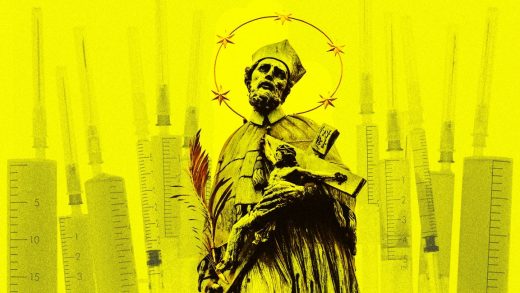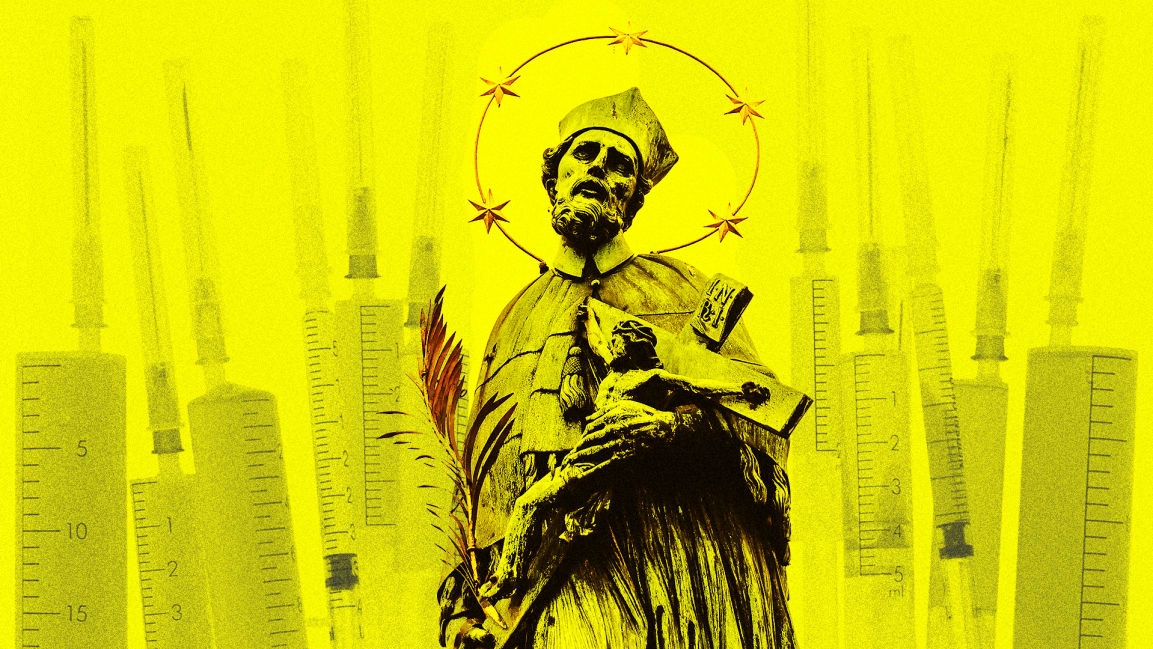Religious exemptions to the COVID-19 vaccine: Here’s what faith leaders actually say
This week, the United States hit a somber pandemic milestone: 1 in 500 Americans have now died from COVID-19. It coincides with the week’s other discouraging COVID news: that the number of people claiming religious exemptions to President Biden’s mandate is seemingly also on the rise. Take Los Angeles, where nearly a quarter of the LAPD supposedly plans to seek exemptions to the city’s mandate. According to the Los Angeles Times, almost 90% of them are religious exemptions. Or just (September 25, 2021) the Washington Post ran a story about an Oklahoma pastor who is signing religious exemptions for anyone who donates to his church. Thirty thousand people have reportedly downloaded his exemption form since Monday. (“It’s beautiful,” he told the paper. “My phone and my emails have blown up.”)
The thing is, very few organized religions object to vaccinations of any kind, according to lists compiled by Vanderbilt University Medical Center and the Johns Hopkins Bloomberg School of Public Health. Lots of religious leaders have, in fact, done the opposite, helping members schedule vaccines and even volunteering their houses of worship as makeshift vaccine clinics. Since so few faiths have doctrinal reasons for remaining unvaccinated, and it’s unclear if any are actively discouraging members from getting the COVID-19 vaccines, the question is what religion are most of these people claiming to be?
Here is how different faith groups have responded to the COVID-19 vaccines, and whether they’ve spoken in favor or against religious exemptions. Their positions are pulled from responses Fast Company received from the groups themselves, and also official statements, either posted online or given to the press. This story may be updated with additional responses as we receive them.
Protestantism
Hardly any Christian denominations oppose vaccines on theological grounds. This includes smaller groups like the Amish, the Mennonites, the Quakers, the Eastern Orthodox, and the Anglicans, as well as larger Protestant denominations like the Baptists and Pentecostals. Yet the Protestants have one distinction setting them apart from other faith groups: In a recent Public Religion Research Institute poll, white evangelical and Hispanic Protestants had the lowest percentage of vaccine accepters in their ranks (56% for both groups). Also, white evangelicals had the highest refusal rate (24%), and were the only group where fewer than half agreed with the statement “Because getting vaccinated against COVID-19 helps protect everyone, it is a way to live out the religious principle of loving my neighbors.”
America has over 200 Christian denominations, but feelings about the vaccine from the conservative-leaning ones have been similar. The president of America’s largest evangelical congregation, the Southern Baptist Convention, posted a photo of himself getting vaccinated to Facebook, and it drew hundreds of enraged comments.
Catholicism
Catholic leaders initially opposed the Johnson & Johnson vaccine’s use of cell lines from aborted fetuses, arguing it was “morally compromised.” Citing “conflicting pronouncements in the mass media by bishops,” the Vatican told Catholics in December that their top moral mandate was to not infect other people with the virus. The church hasn’t addressed religious exemptions specifically, but Pope Francis had a new message for vaccine refusers (September 25, 2021). “It’s a bit strange, because humanity has a history of friendship with vaccines,” he said, according to the AP, adding that we’ve been vaccinating ourselves against measles and polio for ages “and no one said anything.”
Islam
The Islamic Society of North America has actively encouraged Muslims to get vaccinated, as well as to take whatever other precautions are necessary to prevent COVID-19’s spread. Early on, some imams worried about whether the vaccines contained pork products, which are forbidden by Islamic law. ISNA has explained no pork products were used, and that shots wouldn’t break the Ramadan fast. It didn’t respond to Fast Company‘s request for comment about its position on religious exemptions.
Judaism
The Orthodox Union, the Central Conference of American Rabbis, and the Union for Reform Judaism have released statements that call getting vaccinated essentially “a Jewish obligation.” The Orthodox Union acknowledged the vaccines were developed “with unprecedented speed,” and noted Pfizer’s and Moderna’s “employ a new vaccine technology” through mRNA, but said the Torah commands Jewish people to protect life, meaning they should “vaccinate for COVID-19 as soon as a vaccine becomes available.”
Mormon Church
The Church of Jesus Christ of Latter-day Saints has encouraged members repeatedly to get vaccinated, going so far as to update its official policy handbook to say so. President Russell Nelson has called the vaccines a “literal godsend.” And last week, church leaders in California were told not to sign religious exemptions for members seeking to bypass the Golden State’s new vaccine mandate.
Church of Scientology
While certain members have a reputation for being anti-vax, the Church of Scientology itself takes no official stance on immunizations. That notwithstanding, the Church of Scientology in New York’s president, John Carmichael, has offered that Scientologists are “pretty independent people” who “tend to do a little more research, perhaps, on the effect of various medical procedures.” The church has stayed silent on COVID-19 and didn’t respond yet to Fast Company‘s questions.
Religious groups that officially oppose vaccines
Vanderbilt’s research singles out three groups that, as a general practice, oppose vaccines: Christian Scientists, the Dutch Reformed Church, and a small subset of Protestant denominations that practice faith healing.
A spokesman for the First Church of Christ, Scientist, tells Fast Company the church “has made a point to let its members know there is no pressure or judgment for whether one chooses to vaccinate or not.” He adds they “remain mindful of our responsibility to our neighbors and community. We actively strive to live the Golden Rule ethic of treating others with respect, care, and consideration. And of course, we follow the law.”
Religious exemptions vary by geography. The biggest irony in the effort to vaccinate the public is that, experts say, many vaccine refusers probably don’t need a letter signed by a clergy member; they just need to reside in the right state. Right now, 12 states allow residents to object to vaccines on medical, religious, or philosophical grounds, while six states have done away entirely with these exemptions (California, Connecticut, Maine, Mississippi, New York, West Virginia). Some of those six—like Connecticut—repealed their religious exemption laws specifically in response to the pandemic. “When you see a clear pattern,” a lawmaker who voted for Connecticut’s repeal said in April, “it is important to be ahead of the curve.”
(34)



